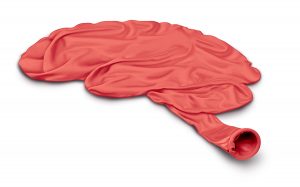 Seniors experiencing memory loss often worry about dementia and brain disease, but not everyone needs to. Senior moments may be a part of life as we age, but it doesn’t mean we’re on the road to Alzheimer’s. New research is clear that memory loss may be reversible. But the earlier you combat it, the better.
Seniors experiencing memory loss often worry about dementia and brain disease, but not everyone needs to. Senior moments may be a part of life as we age, but it doesn’t mean we’re on the road to Alzheimer’s. New research is clear that memory loss may be reversible. But the earlier you combat it, the better.
Beginning in the late 90s, the term Mild Cognitive Impairment appeared to describe people who had problems with recall but who fell between normal functioning and dementia. Everyone’s brains slow down by the age of 40, especially if we do nothing to help preserve it.
Baby boomers are living to older ages than their parents did. And as we are living longer, we are accumulating more processed carbohydrates, gaining more weight, and becoming more sedentary. As a result, Mild Cognitive Impairment (MCI) seems to have exploded into epidemic proportions. It’s not a grim diagnosis, but it is a loud wake-up call.
What Is Mild Cognitive Impairment?
Up to 17 percent of seniors over 65 have some form of MCI, or difficulty in these areas:
- Remembering names
- Finding the correct word
- Remembering where we placed objects
- Concentrating and maintaining focus
These may not seem dangerous, but if you repeatedly experience such things, it is frustrating. It is time to take action and try to improve these skills. Only 6 to 15 percent of people who meet the criteria for MCI will receive a diagnosis of dementia. But ten years later, up to 80 percent of them will be diagnosed with more severe forms of memory loss and dementia.
If you get a diagnosis of MCI, by no means are you doomed to an eventual Alzheimer’s diagnosis. But it’s an excellent reason to go on the offensive. Take charge of your health and do what you can to prevent and reverse age-related types of cognitive decline.
Preventing Memory Loss and Dementia
There is no cure for Alzheimer’s Disease, as of yet. There are many medications on the market, but many of them treat symptoms and don’t address the root causes. It’s important to know that age-related memory loss and A.D. are two distinct conditions.
Two Areas of Memory Loss in the Brain
Average age-related decline targets the hippocampus, the part of the brain involved in learning and memory. The hippocampus and the prefrontal cortex are the two areas affected by short- and long-term memory loss not due to Alzheimer’s Disease.
To fight senior moments, we must engage in strategies that strengthen these two areas. Exercise is essential for brain health because the hippocampus is where neurogenesis (the development of new neurons) occurs. When we do physical exercise, Brain-Derived Neurotropic Growth Factor is released in the brain to stimulate new brain cells in the hippocampus.
Meditation is another strategy that is shown to physically increase the thickness of the prefrontal cortex. This is important because it is also a way to counteract the loss of dopamine with aging.
Learning new things is another way to prevent the loss of neurons. The brain stays healthy through networks of neurons that rewire and grow with stimulation. Trying to learn a new language, a computer game, a dance, or an exercise routine keeps the neural networks challenged and healthy.
Medications for Memory Loss
There isn’t as yet a medication that preserves memory either. Some drugs stimulate alertness so that learning can occur. If one is depressed, there is often insufficient attention, and therefore, knowledge and the formation of memories don’t occur. Appropriate medications to treat underlying causes such as depressed mood may, therefore, help stave off memory loss.
Other ways to slow down or even prevent memory loss involve exercise, social activities, and staying connected with family and friends. All of the prevention steps involve you doing something, like moving more and interacting with other people.
Natural Supplements for the Brain
I haven’t yet completed my research into possible natural supplements to strengthen memory and cognitive functioning. So far, there’s a lot of hype on the Internet and little research into those substances that are readily assimilated into the body and brain for effectiveness.
While a certain enzyme or mineral may be known as beneficial to neurons, it’s another story to get it metabolized and across the blood-brain barrier where it has a therapeutic effect. Stay tuned for my next article.
In the meantime, if you have a favorite “brain booster” supplement, please let me know about it, by email or comments. Thanks!

Recent Comments